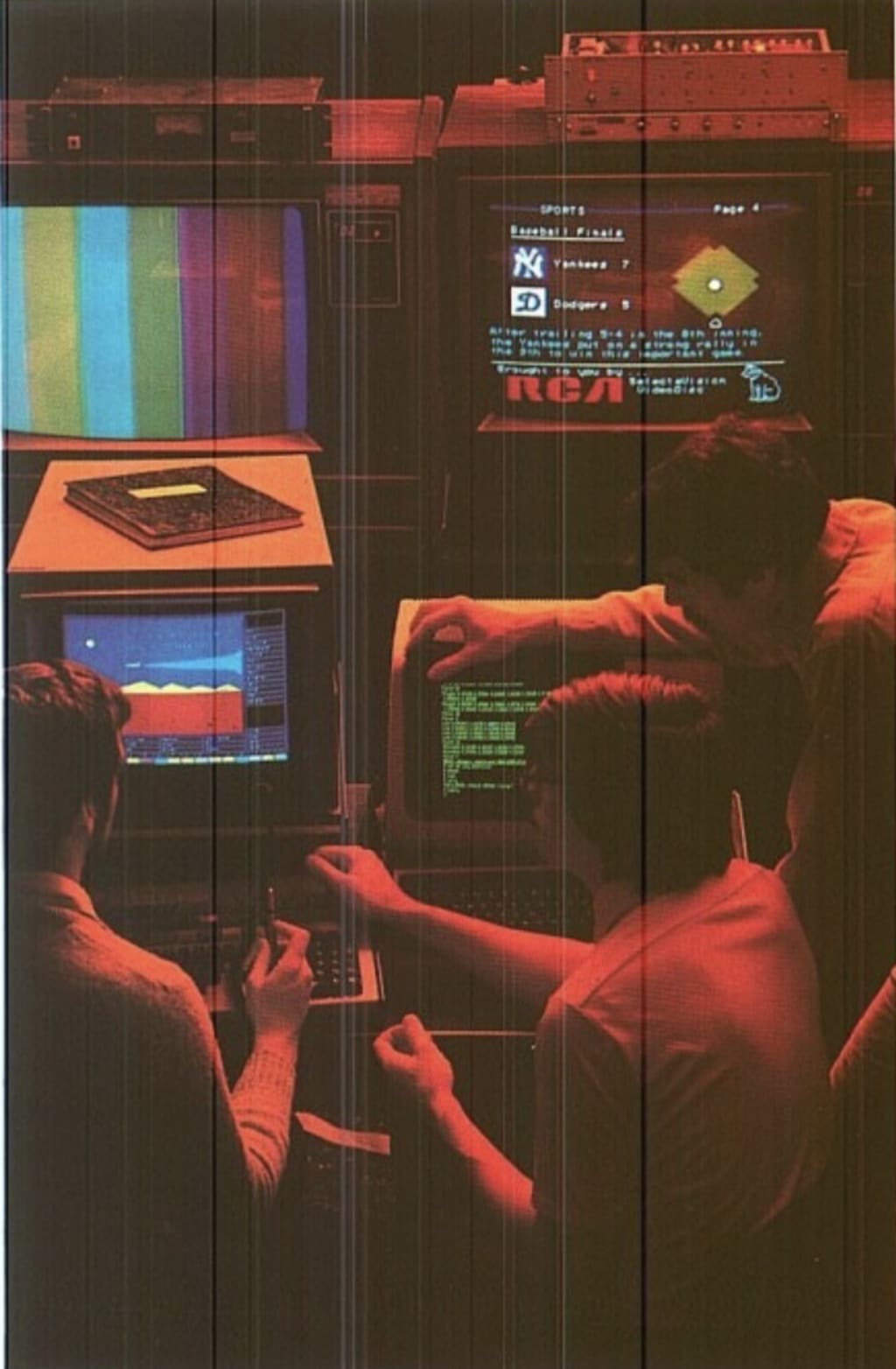Growing Up Watching Stereotypes
How Film Spells a False Narrative of High School

The movies and shows we watch growing up are extremely special to us. They remind us of a time when our biggest concern was catching a seat at the back of the school bus. They had the power to shape our behaviour, mindset and values. But more interestingly, they sold us a compelling representation of what it would be like to grow up, what to expect going into high school and how life would be like as you finally become a teenager. This cinematic representation would soon be exposed to a bittersweet reality: high school just isn’t a harmless, thrilling adventure, jam-packed with nonsensical romance, comedic relief and pleasure. No, it’s a lot more complicated than that. But the way these movies and tv shows influenced our expectations going into high school has, inevitably, affected how we behave and experience it. More specifically, the way movies and shows represent high school, through the constant bombardment of inaccurate stereotypes, can mislead younger audiences into believing in a false narrative of high school. Returning to these universally-adored films that once shaped our lives can not only be incredibly nostalgic, but also help us deconstruct the romanticised narrative of high school that films, directed to younger audiences, so widely advertise. In return, this may provide some insight into how we can approach high school, and even life after high school, in a realistic, gratifying manner.
For younger audiences, a long list of stereotypical social normatives dominated the film and literature scene, and in order to build characters and plot, they were very useful. Social normatives in high school were a must, in order to emphasize the hierarchy in which these characters were placed in. Characters such as the populars, the jocks, the brains, the fine-arts kids, the gamers and more were all placed higher or lower on a social hierarchy that would dictate how each character behaved. As useful as this was for the story, it completely destroys one’s sense of self when applied to the real world. They set us up to expect an incredibly unrealistic view of the general high school population. In high school, there's no specific group of popular kids, even if it may seem so, because there are just too many people and we’re all too unique and individual. The hierarchy of social class in high school is a bit more ambiguous than that. Instead, what you’ll more commonly see are many small groups of peers, and within those groups, an incredibly diverse range of personalities. We all have a place in our friend groups. We don’t rank higher or lower because of them. However, in movies set in high school, you will almost always see this phenomena occur, where there's a specific group of incredibly “popular” students and a sea of students who don’t particularly matter. As a young member of the audience just entering high school, you immediately form expectations that the social hierarchy won’t have a place for you: you’re either a popular kid or an outcast. I’m here to remind you, this is not and has never been the case. Movies like to use this as a way to further the development of their insanely unrealistic plots and a perfect example of this is in Mean Girls. The “mean girls” of the high school are placed in some sort of dominating class, in which every other person is expected to look up to. They control how you view yourself, and you put yourself down tremendously because of it. Because these social hierarchies don’t exactly exist in high school, it means that you aren’t limited by them at all, and can truly explore all aspects of high school as much as you wish. You aren’t limited by your friend groups, age, interests or background. Even though it feels like it is, breaking the bounds and using the experience of high school to truly find yourself as you are is the best thing you can do for yourself. Using these absurd, unrealistic social norms to define your entire high school experience will only mock the reality of it. The greatest lesson to carry with you: Progressing in life with any expectations at all can tarnish your experience of it.
Aside from social normative stereotypes, there are more specific stereotypes that have found a way to sneak into our minds upon entering high school: the stereotypes around drama. This is a massive subject to unload because drama in high school can be a lot. As hard as you try to avoid it, you’ll find some way or another to be dragged into it against your own will. As teenagers, we have a tendency to do that. However, what I can tell you is that the drama is not at all how it is displayed in the movies and shows you see, and more importantly, how we go about resolving conflict is unbelievably different. Growing up, I, as much as anyone else, watched a lot of Disney Channel. I’d be lying if I didn’t say many of my expectations of high school, at a young age, stemmed from how Disney Channel portrayed it. Universally-adored tv shows like the Suite Life on Deck, Wizards of Waverly Place and Hannah Monata were humorous, fun-loving tv shows set in high school, staging teenagers in very tricky situations. The problem-solving tactics these shows displayed are very appealing to children, but unilluminating for young teenagers just entering high school. Disney Channel sold the belief that problems will occur, a solution will be found and everything will resume back to normal within the allotted 30-minute run. The consequences of each character’s actions were on display for no more than one episode, and the story would continue to run its normal course of action. The problem with this is that life is not nearly that simple. In high school, you can’t say horrible things about people behind their backs without them finding out, and you can’t simply go on living your normal life without feeling the consequences of it. You'll find yourself exposed to things you've never seen on television before. You may be faced with making decisions that have lasting consequences. You will inevitably learn, that is real life. That is the reality of things. Disney movies like High School Musical, Camp Rock, Radio Rebel and so many more hardly dive into the more complex dramas of highschool, sticking to easily-resolvable, universal issues. Unfortunately, when rumours break out and the drama starts, don’t expect it to always go away immediately. When people make mistakes, the reputation lingers, whether it be in the back of people’s minds or plastered against the school walls. As scary as it is, that’s how it’s always been. Disney channel might not have put it so brutally, which is understandable considering its audience, but as young teenagers going into high school, we need to know better.
The dilemma of fitting-in is a tale as old as time, and there’s a simple solution we’ve all heard, many times before: Just be yourself! What is that? When you take a step back and really analyze who you are, you may be filled with a sense of loss and confusion. The idea of true identity can feel a little daunting: How can you really know who you truly are? Characters in film and tv shows have their entire lives, personalities, desires and passions mapped out for them, thanks to an impressive writing and production team. However, our individual identities are far more complex than that. It’s difficult to say, with confidence, who you really are yet, because your concept of identity is only in its very early years! In this sense, you should feel lost and eager to discover. High school is a unique time, in the sense that it forces you to confront this dilemma of “true identity” before you head off to university, and then into the real world. Film adaptations of high school often neglect the darker realities of this process, while focusing more towards the negative effects of avoiding the search for identity. Movies such as Disney Channel’s Sky High, High School Musical, Camp Rock, Radio Rebel, are all built on the exact same premise: avoiding who you truly are and taking on a separate persona to “fit in” will only lead you further astray. I had this idea burned into my brain and realized, very early on, that this was not a mistake to make growing up. Always be yourself, they said. This is a beautiful premise, but it’s rendered meaningless if you have no way of distinguishing your true identity from your supposed false persona. The complicated, time-consuming, strenuous search for identity is discussed very little in our youth. The journey of discovering one’s identity is avoided completely when you’re hand-fed predictable, predetermined characters in the form of packaged, socially-acceptable plotlines. Going into high school, you knew to be genuine and to be who you truly are, but when your entire concept of identity begins to crumble, your former ideas of high school and what it means to be a teenager will not be there to catch you.
Thankfully, Disney channel is not the only source of content set in high school, and there are actually a few notable films that elegantly capture the reality of it, as far as the limits of film allow it. Films such as the Perks of Being a Wallflower, The Edge of Seventeen, Boyhood, The Half of It and Booksmart are films that are a bit more thoughtful about how they express character development and the conflicts they battle with. In my opinion, it sheds a more realistic light upon taboo issues, making it’s audience feel a little less alienated, especially at a time when almost everyone feels that alienation. The characters in these films battle with mental health and the meaning of existence in ways that take over their lives in high school. Films such as these dive deep into personal conflicts regarding school, love, family, morals, academics, the meaning of existence and happiness. The characters are seen battling with them separately and all at once, so that, as an audience, we’re able to see how each conflict overlaps and are able to judge the correct resolutions for ourselves. No matter what it is, engaging in meaningful content can help us manage the struggles we haven’t been taught to do properly. It’s an issue that needs so much more attention, but until then, movies such as these offer a fresh, new, and most importantly, reliable perspective on life during high school and the battles that come with it.
Hollywood oversells the idea of highschool in a way that tarnishes our experience as a teenager. It sets up unrealistic expectations about love, friendship, heartache, success, and most importantly, your relationship with yourself. Because of the stereotypical plots and characters we are exposed to at a young age, it’s not a shock that I see many kids struggling to manage their way through the complex, new world that is high school. Newfound burdens overtake their lives and it can all feel a bit overwhelming when you haven’t been given the tools to combat these struggles in an effective, healthy way. In high school, expect to be constantly changing, expect to be constantly figuring out seemingly impossible tasks, and most importantly, expect growth. By Grade 12, you’ll see that you were never the same person once, and that there’s so much more to life than catching a seat at the back of the school bus.
About the Creator
Aathavi Thanges
Disposing my thoughts one page at a time







Comments
There are no comments for this story
Be the first to respond and start the conversation.